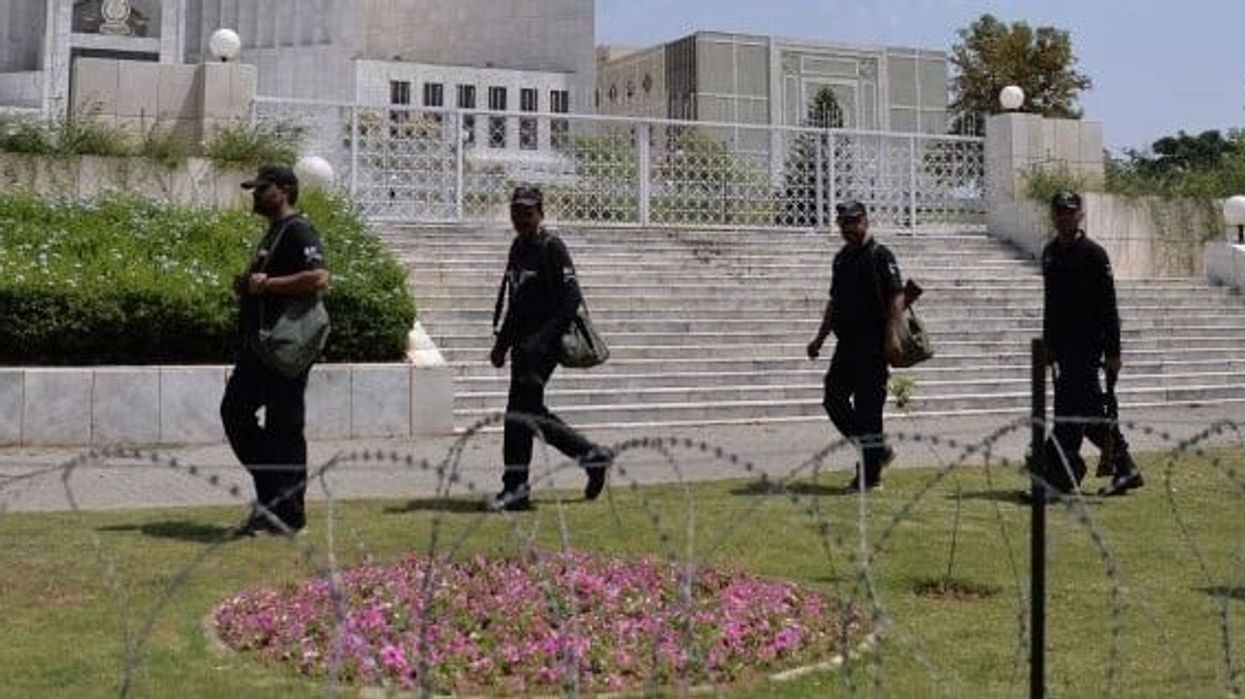PAKISTAN'S anti-corruption watchdog has established an anti-money laundering and terror financing cell to check financial crimes and illegal transfer of resources.
Paris-based Financial Action Task Force (FATF) placed Pakistan on the grey list in June 2018 and asked Islamabad to implement a plan of action to curb money laundering and terror financing by the end of 2019 but the deadline was extended later on due to the Covid-19 pandemic.
Pakistan's National Accountability Bureau (NAB) took action as the country struggled to get out of the FAFT grey list, the Dawn newspaper reported on Monday (5).
The move comes after the FATF retained Pakistan on its 'grey list' last month for failing to check money laundering, leading to terror financing, and asked Islamabad to investigate and prosecute senior leaders and commanders of UN-designated terror groups, including Hafiz Saeed and Masood Azhar.
The global body against money laundering and terror financing also asked Pakistan to work to address its strategically important deficiencies.
Pakistan will continue to remain on the "increased monitoring list", FATF president Marcus Pleyer said on June 25 after the decision had been taken at the conclusion of the FATF's virtual plenary. "Increased monitoring list" is also known as the 'grey list'.
A senior official told the newspaper that the Anti-Money Laundering and Combating the Financing of Terrorism (AML&CFT) cell would coordinate with the FATF secretariat and stakeholders to curb money laundering and terror financing.
The report said the main responsibility to investigate terror financing cases will lie with the Federal Investigation Agency (FIA).
According to a NAB official, Pakistan being a member of the United Nations Convention against Corruption (UNCAC), it was mandatory for the bureau to set up the cell to weed out corruption. He said NAB was operating with a three-pronged strategy of ‘awareness, prevention and enforcement'.
Pakistan has been scrambling in recent months to avoid being added to a list of countries deemed non-compliant with anti-money laundering and terrorist financing regulations by the FAFT, a measure that officials in Islamabad fear could further hurt its economy.
In February, the FATF gave a fourth extension to Pakistan to fully implement a 27-point action plan and ‘strongly urged' it to meet the remaining three conditions about terror financing investigations and the United Nations Security Council resolutions.
Noting that Pakistan has now completed 26 of the 27 action items given to it in 2018, Pleyer said last month the organisation has asked the country to take action against UN-designated terrorists.
The UN-designated terrorists based in Pakistan include Jaish-e-Mohammed (JeM) chief Azhar, Lashkar-e-Taiba (LeT) founder Saeed and its 'operational commander' Zakiur Rehman Lakhvi.
Azhar, Saeed and Lakhvi are the most wanted terrorists in India for their alleged involvement in numerous terrorist acts, including the 26/11 Mumbai terror attacks and the bombing of a Central Reserve Police Force (CRPF) bus in Jammu and Kashmir's Pulwama district in 2019.




